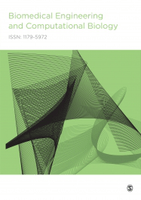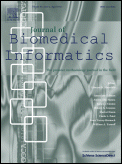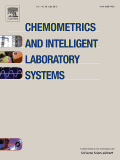
Annual Review of Biomedical Data Science
metrics 2024
Transforming Data into Life-Saving Insights
Introduction
Annual Review of Biomedical Data Science, published by ANNUAL REVIEWS, stands as a premier journal in the fields of Biomedical Engineering, Biochemistry, Genetics, and Cancer Research, with an impressive Q1 ranking across these categories in 2023. With its ISSN and e-ISSN both assigned as 2574-3414, this journal serves as a critical resource for researchers, professionals, and students looking to delve into comprehensive reviews of the rapidly evolving landscape of biomedical data science. The journal's scope includes the intersection of data science methodologies and biomedical applications, making it essential for those aiming to stay at the forefront of innovations that drive advancements in healthcare and medical research. Although it currently does not provide open access options, its commitment to high-quality research and its robust rankings—placing it in the 94th percentile in its field—underscore its significance and credibility in the academic community. Operating from the United States, with its offices located in Palo Alto, CA, this journal is a vital contributor to the discourse on the integration of data science within biomedical fields, fostering collaboration and knowledge dissemination among scholars worldwide.
Metrics 2024
 3.03
3.03 7.00
7.00 6.20
6.20 22
22Metrics History
Rank 2024
Scopus
IF (Web Of Science)
JCI (Web Of Science)
Quartile History
Similar Journals

Data Technologies and Applications
Fostering Interdisciplinary Dialogues in Data ScienceData Technologies and Applications is a leading academic journal published by Emerald Group Publishing Ltd, captivating the interest of researchers, professionals, and students alike within the dynamic fields of Information Systems and Library and Information Sciences. With its ISSN 2514-9288 and E-ISSN 2514-9318, this journal holds a commendable Q2 ranking in Library and Information Sciences and a Q3 ranking in Information Systems as of 2023, reflecting its impact and contribution to ongoing discourse in these disciplines. Operating with an open access model, it provides a platform for accessing high-quality research that encompasses innovative methodologies and applications of data technologies. The journal's scope includes interdisciplinary studies that leverage data to enhance decision-making, improve information retrieval, and foster technological convergence. Housed in the United Kingdom, the journal facilitated its first publication in 2018, with a commitment to fostering valuable academic conversations through to 2024 and beyond. Engage with insightful research that shapes the future of data technologies and applications, making this journal an essential resource for anyone invested in the advancement of knowledge in these pivotal fields.

Engineering Journal-Thailand
Pioneering new frontiers in engineering scholarship.Engineering Journal-Thailand, published by Chulalongkorn University, Faculty of Engineering, is a prominent academic journal dedicated to advancing knowledge and research in the diverse field of engineering. With an ISSN of 0125-8281 and an unwavering commitment to quality, the journal has established a substantial presence in the academic community since its inception in 2009. As of 2023, it is ranked in the Q3 category for Engineering (miscellaneous) and has achieved a Scopus rank of 137 out of 307, placing it in the 55th percentile of general engineering journals. Although it operates without open access, its impact within the engineering domain is significant, providing a vital platform for researchers, professionals, and students to disseminate their findings and engage with contemporary engineering challenges. The journal serves as a vital resource for those seeking to stay at the forefront of engineering innovation and contributes to the global discourse by bridging local insights with international perspectives.

Biomedical Engineering and Computational Biology
Advancing Healthcare Through Engineering InnovationBiomedical Engineering and Computational Biology is a premier journal dedicated to advancing the fields of biomedical engineering and computational biology through rigorous research and innovation. Published by SAGE Publications Ltd, this Open Access journal has been providing a platform for the dissemination of high-quality research since 2009, enabling wider accessibility and collaboration among scientists and practitioners around the globe. With its comprehensive scope that encompasses the intersection of engineering principles and biological systems, the journal plays a critical role in fostering advancements in healthcare technologies and computational methods. Researchers, professionals, and students alike can take advantage of its rich repository of articles that contribute significantly to the understanding and application of complex biological data through computational techniques. The journal’s commitment to excellence is reflected in its high visibility within the scientific community, making it an essential resource for those looking to stay at the forefront of this dynamic field.

Network Modeling and Analysis in Health Informatics and Bioinformatics
Connecting research to enhance patient care and medical insights.Network Modeling and Analysis in Health Informatics and Bioinformatics, published by SPRINGER WIEN, stands as a vital resource in the interdisciplinary domains of health informatics and bioinformatics. With an ISSN of 2192-6662 and E-ISSN of 2192-6670, this journal aims to facilitate the dissemination of innovative research that intersects network modeling, data analysis, and health applications. The journal competes at a Q3 quartile level across multiple categories including Biomedical Engineering and Health Informatics, showcasing its growing influence within the academic community. As of 2023, it holds impressive Scopus rankings, including a 20th position in Urology, illustrating its significance in the field. Although not an open access publication, the journal is dedicated to providing cutting-edge insights from 2012 to 2024 and is poised to attract researchers, professionals, and students striving to push the boundaries of knowledge in health informatics and bioinformatics. This journal is not just a platform for sharing scholarly articles; it is a catalyst for advancing methodologies that enhance patient care and medical research.

Journal of Integrative Bioinformatics
Exploring Integrative Methodologies in Medicine and BeyondJournal of Integrative Bioinformatics, published by WALTER DE GRUYTER GMBH, is a leading open-access journal that has been at the forefront of the field since its inception in 2004. With an E-ISSN of 1613-4516, it serves as a crucial platform for researchers engaged in the interdisciplinary study of bioinformatics, blending insights from biology, computer science, and mathematics. Based in Germany, the journal is recognized for its impact in the realm of general medicine, boasting a Scopus rank of #172 out of 636 and placing in the 73rd percentile of its category. The journal continuously strives to disseminate high-quality research contributions that unify experimental and computational approaches to address complex biomedical questions. Targeted towards academics, professionals, and students alike, the Journal of Integrative Bioinformatics provides essential access to innovative research that enhances our understanding of integrative methodologies in medicine and beyond, especially with converged years spanning from 2008 to 2024.

Big Data Mining and Analytics
Exploring the Future of Big Data AnalyticsBig Data Mining and Analytics, published by TSINGHUA UNIVERSITY PRESS, stands at the forefront of interdisciplinary research in the fields of Artificial Intelligence, Computer Networks and Communications, Computer Science Applications, and Information Systems. With an impressive Q1 ranking in multiple categories as of 2023, this journal serves as a critical platform for researchers and professionals eager to explore innovative techniques and methodologies related to big data analytics. Since its transition to Open Access in 2018, Big Data Mining and Analytics has aimed to increase the visibility and accessibility of its cutting-edge research, making permanent strides in the global academic landscape. Housed in Beijing, China, and actively embracing the converged years from 2018 to 2024, the journal aims to cultivate a rich discourse on emerging trends and applications, ensuring its relevance in a rapidly evolving technological environment. Join a vibrant community of scholars dedicated to advancing the frontiers of knowledge in big data.

Biomedical Engineering Online
Pioneering discoveries in biomedical engineering since 2002.Biomedical Engineering Online, published by BMC, is an esteemed open-access journal in the United Kingdom that has been advancing the field of biomedical engineering since its inception in 2002. With a commitment to disseminating high-quality research, the journal encompasses a broad scope, including innovative studies in biomaterials, imaging technologies, and medical applications. Recognized within the Q2 quartile for various categories such as Biomaterials and Biomedical Engineering, it ranks favorably among its peers: Rank #58 out of 333 in Radiology, and Rank #15 out of 63 in Radiological and Ultrasound Technology in the Scopus database. These rankings, coupled with an open-access model, ensure that critical advancements in medical technology are accessible to researchers, health professionals, and students globally. As it continues through its converged years from 2002 to 2024, Biomedical Engineering Online remains an invaluable resource for anyone involved in the cutting-edge intersection of engineering and medicine.

JOURNAL OF BIOMEDICAL INFORMATICS
Empowering health solutions through data-driven insights.JOURNAL OF BIOMEDICAL INFORMATICS, published by Academic Press Inc. Elsevier Science, is a premier peer-reviewed journal dedicated to the integration of computer science and health informatics to advance the field of biomedical engineering and healthcare. With its ISSN 1532-0464 and E-ISSN 1532-0480, this influential journal has established itself with an impressive impact factor, reflecting its high-quality research contributions. Recognized within the top quartile (Q1) of both Computer Science Applications and Health Informatics for 2023, the journal ranks #135 out of 817 in Computer Science Applications and #25 out of 138 in Health Informatics according to Scopus metrics. Offering open access options, it fosters extensive dissemination and accessibility of groundbreaking research findings to the scientific community. As a scholarly platform from 2001 to 2024, it is engineered to cater to the educational needs of researchers, professionals, and students, promoting innovative studies that bridge the gap between technology and healthcare.

Cognitive Computation
Unraveling the Cognitive Processes Behind Computational BreakthroughsCognitive Computation is a prominent journal published by Springer, focusing on interdisciplinary research at the intersection of cognitive sciences and computational methods. With an ISSN of 1866-9956 and an E-ISSN of 1866-9964, this journal has established itself as a leading resource for novel advancements and methodologies from 2009 through 2024. It is categorized in the top quartile (Q1) for 2023 in influential fields such as Cognitive Neuroscience, Computer Science Applications, and Computer Vision and Pattern Recognition. With impressive Scopus rankings including a 14th position in Cognitive Neuroscience and a percentile rank of 88th, the journal serves as a crucial platform for researchers and professionals eager to explore the cognitive processes underlying computational techniques. Although it does not operate under an open access model, the richness of research published within its pages contributes significantly to the academic discourse in these rapidly evolving domains, making it an essential read for scholars and practitioners alike.

CHEMOMETRICS AND INTELLIGENT LABORATORY SYSTEMS
Transforming data into discovery in the laboratory landscape.Chemometrics and Intelligent Laboratory Systems is a distinguished journal published by Elsevier, disseminating pivotal research and innovations at the intersection of analytical chemistry, computer science applications, and chemical engineering. With an impressive impact factor reflecting its scholarly influence, the journal aims to advance the development and implementation of chemometric methods, artificial intelligence, and intelligent systems in laboratory settings. Since its inception in 1986, the journal has consistently featured high-quality articles, currently positioned in the Q2 quartile across multiple relevant fields including Analytical Chemistry and Process Chemistry. Based in the Netherlands, the journal invites rigorous contributions that enhance the understanding and application of sophisticated data analysis techniques in scientific research. Although it currently does not offer open access options, the journal remains a vital resource for researchers and professionals dedicated to exploration and advancements in laboratory methodologies and analytical technologies.